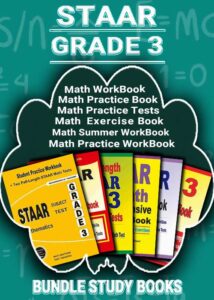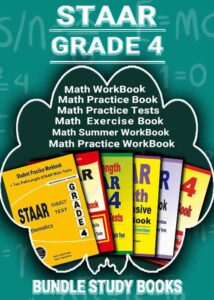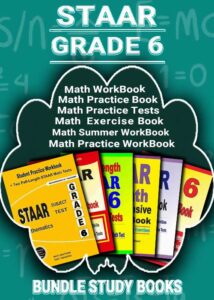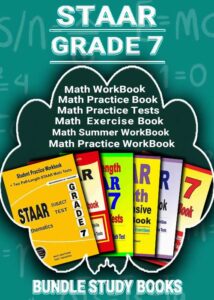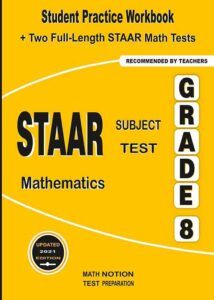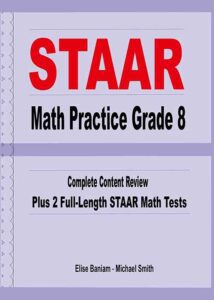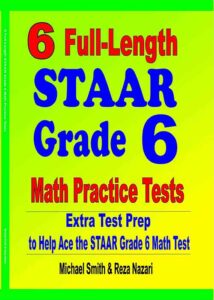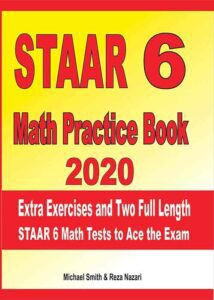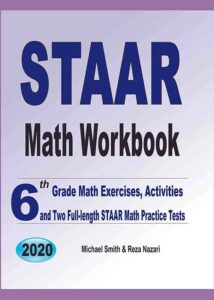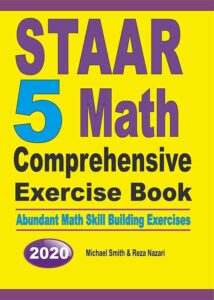
Study Time: 5minutes
How to Prepare for the State of Texas Assessments of Academic Readiness (STAAR)
The State of Texas Assessments of Academic Readiness (STAAR) serves as a cornerstone in the state’s educational system, providing students with a rigorous evaluation of their knowledge and skills across various subjects. Designed to align with the Texas Essential Knowledge and Skills (TEKS), the STAAR test covers essential standards in subjects such as Mathematics, Science, Social Studies, Reading, and Writing, spanning from grade 3 to high school graduation. In this comprehensive guide, we’ll explore the key components of the STAAR test, effective preparation strategies, and invaluable resources to ensure success on test day.
Understanding the STAAR Test
The STAAR test encompasses a wide range of subjects and grade levels, each tailored to assess students’ proficiency in specific areas. From elementary school to high school, students undergo rigorous testing in subjects like Mathematics, Science, Social Studies, Reading, and Writing. End-of-course assessments further evaluate students’ understanding in subjects such as Algebra, Geometry, Chemistry, Physics, English, Geography, and History. Notably, the Exit Level STAAR test, administered to students in grade 11, serves as a pivotal milestone in their academic journey.
Navigating the STAAR Test by Grade Level
- Elementary School: Grade 3 students tackle tests in Reading and Math, while grade 4 students face assessments in Writing, Math, and Reading. Moving to grade 5, students are tested in Math, Science, and Reading, with testing typically occurring in March. Students who do not pass the exam have additional opportunities for retesting in May and June.
- Middle School: Grade 6 students undergo tests in Reading and Math, while grade 7 students tackle assessments in Writing, Math, and Reading. In grade 8, students face tests in Social Studies, Math, Reading, and Science, determining their readiness to progress to grade 9.
- High School: High school students confront the STAAR test in subjects such as Algebra, English, U.S. History, and Biology, evaluating their mastery of subject-specific knowledge. The results of these assessments inform decisions regarding grade promotion and academic readiness for higher-level courses.
Preparing for Success on the STAAR Test
Achieving success on the STAAR test requires diligent preparation and strategic study tactics. Here are some essential tips to help you prepare effectively:
- Master Key Concepts: Focus on mastering the key concepts and skills outlined in the TEKS standards for each subject. Review topics such as conversion factors, formulas, data analysis, algebraic relationships, geography, government, economics, and scientific principles.
- Utilize Reputable Resources: Take advantage of multiple resources, including textbooks, study guides, online practice tests, and educational websites, to familiarize yourself with the format and types of questions that may appear on the STAAR test.
- Practice, Practice, Practice: Practice is essential for success on the STAAR test. Dedicate regular study sessions to work through practice questions and simulated exams, allowing you to build confidence and familiarity with the test format.
- Identify Weak Areas: Conduct regular self-assessments to identify areas where you may need additional support or review. Focus your study efforts on strengthening these weak areas to ensure comprehensive preparation.
Benefits of PARCC
- Alignment with College and Career Readiness: PARCC assessments are designed to reflect the skills and knowledge needed for success in college and careers, providing students with a clear pathway to academic readiness.
- Data-Driven Insights: PARCC results offer educators and policymakers valuable data insights into students’ strengths and areas for improvement, enabling targeted interventions and curriculum adjustments.
- Enhanced Instructional Practices: PARCC assessments promote deeper learning and higher-order thinking skills, encouraging educators to implement effective instructional practices that foster critical thinking and problem-solving.
- Consistency and Comparability: PARCC assessments ensure consistency and comparability in academic standards and expectations across participating states, facilitating equitable educational opportunities for all students.
Conclusion
Preparing for the STAAR test requires dedication, perseverance, and effective study strategies. By understanding the test structure, mastering key concepts, and utilizing high-quality study resources, you can maximize your chances of success on test day. Remember to approach each section methodically, prioritize your study time effectively, and seek support from teachers, tutors, or online resources as needed. With thorough preparation and determination, you can conquer the STAAR test and take a significant step towards achieving your academic goals.


